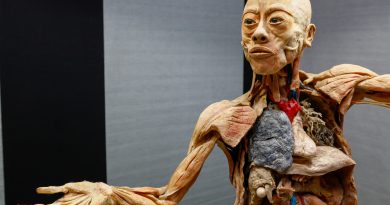voltaire beliefs on human nature
He was famous for his plays and poetry as well as Political, Religious and Philosophical writings. Voltaire's beliefs on freedom and reason is what ultimately led to the French Revolution, the United States Bill of Rights, and the decrease in the power of the Catholic Church, which have all affected modern western society. Nevertheless, others found in Voltaire both a model of the well-oriented philosophe and a set of particular philosophical positions appropriate to this stance. Voltaire was the first person to be honored with re-burial in the newly created Pantheon of the Great Men of France that the new revolutionary government created in 1791. Voltaire collapsed both challenges into a singular vision of his enemy as backward Cartesianism. hedonism | He wrote as many plays, stories, and poems as patently philosophical tracts, and he in fact directed many of his critical writings against the philosophical pretensions of recognized philosophers such as Leibniz, Malebranche, and Descartes. Voltaire only began to identify himself with philosophy and the philosophe identity during middle age. Voltaire often used satire, mockery and wit to undermine the alleged rigor of philosophical dialectic, and while Socrates saw this kind of rhetorical word play as the very essence of the erroneous sophism that he sought to alleviate, Voltaire cultivated linguistic cleverness as a solvent to the false and deceptive dialectic that anchored traditional philosophy. Taylor (ed. In a similar way, Voltaire remains today an iconic hero for everyone who sees a positive linkage between critical reason and political resistance in projects of progressive, modernizing reform. This framing was recapitulated by the opponents of the Encyclopdie, who began to speak of the loose assemblage of authors who contributed articles to the work as a subversive coterie of philosophes devoted to undermining legitimate social and moral order. Voltaire installed himself permanently at Ferney in early 1759, and from this date until his death in 1778 he made the chateau his permanent home and capital, at least in the minds of his intellectual allies, of the emerging French Enlightenment. In these cases, one often sees Voltaire defending less a carefully reasoned position on a complex philosophical problem than adopting a political position designed to assert his conviction that liberty of speech, no matter what the topic, is sacred and cannot be violated. Historians in fact still scratch their heads when trying to understand why Voltaires Lettres philosophiques proved to be so controversial. European Natural philosophers in the second half of the seventeenth century had thrown out the metaphysics and physics of Aristotle with its four part causality and teleological understanding of bodies, motion and the cosmic order. In the last sentence on p. 21, Voltaire introduces the rest of his discussion by suggesting that religious teachers (by "supernatural help") are the sole source of the notion of the soul: reason alone does not suggest it. From early in his youth, Voltaire aspired to emulate his idols Molire, Racine, and Corneille and become a playwright, yet Voltaires father strenuously opposed the idea, hoping to install his son instead in a position of public authority. His early orientation toward literature and libertine sociability, however, shaped his philosophical identity in crucial ways. But he was also a different kind of writer and thinker. What was Voltaires view on human nature? Diderot was the son of a widely respected master cutler. With the ascension of Louis XVI in 1774 and the appointment of Turgot as Controller-General, the French establishment began to embrace the philosophes and their agenda in a new way. Franois-Marie Arouet, known by his literary pseudonym Voltaire, was a French Enlightenment writer, historian, and philosopher famous for his wit, his attacks on the established Catholic Church, and his advocacy of freedom of religion, freedom of expression, and separation of church and state. The model he offered of the philosophe as critical public citizen and advocate first and foremost, and as abstruse and systematic thinker only when absolutely necessary, was especially influential in the subsequent development of the European philosophy. Voltaire was certainly no great contributor to the political economic science that Smith practiced, but he did contribute to the wider philosophical campaigns that made the concepts of liberty and hedonistic morality central to their work both widely known and more generally accepted. Because of his strong views on human nature, Hobbes wanted a government in which the leader could impose order and demand obedience. Voltaire believed everyone had the right to liberty and hedonism. Voltaire (21st November 1694 - 30th May 1778) was a French Enlightenment thinker and his real name was Francois-Marie Arouet. He was, however, a vigorous defender of a conception of natural science that served in his mind as the antidote to vain and fruitless philosophical investigation. One climax in this effort was reached in 1774 when the Encyclopdiste and friend of Voltaire and the philosophes, Anne-Robert Jacques Turgot, was named Controller-General of France, the most powerful ministerial position in the kingdom, by the newly crowned King Louis XVI. The original series published over 450 volumes, many related to Voltaire, and while the new title reflects a change toward a broader publishing agenda, it remains, along with Cahier Voltaire published by La Fondation Voltaire Ferney, the best periodical source for new scholarship on Voltaire. The position also legitimated him as an officially sanctioned savant. Yet while Socrates championed rigorous philosophical dialectic as the agent of this emancipation, Voltaire saw this same dialectical rationalism at the heart of the dogmatism that he sought to overcome. In the decades before 1734, a series of controversies had erupted, especially in France, about the character and legitimacy of Newtonian science, especially the theory of universal gravitation and the physics of gravitational attraction through empty space. In the Lettres philosophiques, Voltaire had suggested a more radical position with respect to human determinism, especially in his letter on Locke, which emphasized the materialist reading of the Lockean soul that was then a popular figure in radical philosophical discourse. Electronic Scholarly Publishing Project, 1998. Voltaire chose the latter, falling once again into the role of scandalous rebel and exile as a result of his writings. It may seem at first that Voltaire views humanity in a dismal light and merely locates its deficiencies, but in fact he also reveals attributes of redemption in it, and thus his view of human nature is altogether much more balanced and multi-faceted. Bolingbroke lived in exile in France during the Regency period, and Voltaire was a frequent visitor to La Source, the Englishmans estate near Orlans. Franois-Marie Arouet (French: [fswa mai aw]; 21 November 1694 - 30 May 1778) was a French Enlightenment writer, historian, and philosopher ().Known by his nom de plume M. de Voltaire (/ v l t r, v o l-/; also US: / v l-/; French: [vlt]), he was famous for his wit, and his criticism of Christianityespecially of the Roman Catholic Churchand of slavery. The human mind as inert The universe reduced to shape, size, and motion 'Reason' in the age of reason The enlightenment placement of feeling Determinism in enlightenment thought Laws of nature Agenda Class Week 6 Maupertuiss thought at the time of his departure for Prussia was turning toward the metaphysics and rationalist epistemology of Leibniz as a solution to certain questions in natural philosophy. Voltaire worked to defend Civil Liberties. At the center of the Newtonian innovations in natural philosophy was the argument that questions of body per se were either irrelevant to, or distracting from, a well focused natural science. The English philosopher and political theorist John Locke (1632-1704) laid much of the groundwork for the Enlightenment and made central contributions to the development of liberalism. Vol. Western philosophy was profoundly shaped by the conception of the philosophe and the program for Enlightenment philosophie that Voltaire came to personify. 322166814/www.reference.com/Reference_Mobile_Feed_Center3_300x250, How My Regus Can Boost Your Business Productivity, How to Find the Best GE Appliances Dishwasher for Your Needs, How to Shop for Rooms to Go Bedroom Furniture, Tips to Maximize Your Corel Draw Productivity, How to Plan the Perfect Viator Tour for Every Occasion. The occasion for his departure was an affair of honor. Voltaire never actually said I disagree with what you say, but I will defend to the death your right to say it. Yet the myth that associates this dictum with his name remains very powerful, and one still hears his legacy invoked through the redeclaration of this pronouncement that he never actually declared. The mirror is a worthless invention. In its fusion of traditional French aristocratic pedigree with the new wealth and power of royal bureaucratic administration, the dArouet family was representative of elite society in France during the reign of Louis XIV. This arrangement proved especially beneficial to Voltaire when scandal forced him to flee Paris and to establish himself permanently at the Du Chtelet family estate at Cirey. Voltaire believed in religious tolerance because it is part of humanity, he thought the ideal religion would teach more morality than dogma and fanaticism, and the points in which we all agree is what is true in religion. During these scandals, Voltaire fought vigorously alongside the projects editors to defend the work, fusing the Encyclopdies enemies, particularly the Parisian Jesuits who edited the monthly periodical the Journal de Trevoux, into a monolithic infamy devoted to eradicating truth and light from the world. Voltaire adopted a stance in this text somewhere between the strict determinism of rationalist materialists and the transcendent spiritualism and voluntarism of contemporary Christian natural theologians. He became reacquainted with Emilie Le Tonnier de Breteuil,the daughter of one of his earliest patrons, who married in 1722 to become the Marquise du Chtelet. ), Boston: Bedford/St. Voltaires campaign on behalf of smallpox inoculation, which began with his letter on the topic in the Lettres philosophiques, was similarly grounded in an appeal to the facts of the case as an antidote to the fears generated by logical deductions from seemingly sound axiomatic principles. Raffael Burton (ed. These horrors do not serve any apparent greater good, but point only to the cruelty and folly of humanity and the indifference of the natural world. Voltaire found this Leibnizian turn dyspeptic, and he began to craft an anti-Leibnizian discourse in the 1740s that became a bulwark of his brand of Newtonianism. Yet Humes target remained traditional philosophy, and his contribution was to extend skepticism all the way to the point of denying the feasibility of transcendental philosophy itself. Voltaire. Voltaires Life: The Philosopher as Critic and Public Activist, 1.5 From French Newtonian to Enlightenment, Look up topics and thinkers related to this entry, Hume, David: Newtonianism and Anti-Newtonianism. Especially important was his critique of metaphysics and his argument that it be eliminated from any well-ordered science. But the English years did trigger a transformation in him. Voltaire was also, like Socrates, a public critic and controversialist who defined philosophy primarily in terms of its power to liberate individuals from domination at the hands of authoritarian dogmatism and irrational prejudice. Voltaire participated, and in the fall of that year when the returns were posted he had made a fortune. All of Voltaires public campaigns, in fact, deployed empirical fact as the ultimate solvent for irrational prejudice and blind adherence to preexisting understandings. Lowell Bair (ed. Maupertuis had preceded Voltaire as the first aggressive advocate for Newtonian science in France. Franois-Marie dArouet (16941778), better known by his pen name Voltaire, was a French writer and public activist who played a singular role in defining the eighteenth-century movement called the Enlightenment. The Newtonians countered that phenomenal descriptions were scientifically adequate so long as they were grounded in empirical facts, and since no facts had yet been discerned that explained what gravity is or how it works, no scientific account of it was yet possible. In particular, while other writers were required to appeal to powerful financial patrons in order to secure the livelihood that made possible their intellectual careers, Voltaire was never again beholden to these imperatives. They further insisted that it was enough that gravity did operate the way that Newton said it did, and that this was its own justification for accepting his theory. What was Voltaire's ideas on individual freedoms? He sided with Maupertuis, ordering Voltaire to either retract his libelous text or leave Berlin. The Voltaire Foundations series Studies on Voltaire and the Eighteenth Century changed its name in 2013 to Oxford University Studies on Enlightenment. Hellman, Lilian, 1980, Dorothy Parker, John La Touche, Richard Wilbur, and Leonard Bernstein, 19561957. Shane Weller (ed. While the singular defense of Newtonian science had focused Voltaires polemical energies in the 1730s and 1740s, after 1750 the program became the defense of philosophie tout court and the defeat of its perceived enemies within the ecclesiastical and aristo-monarchical establishment. Few questioned that Newton had demonstrated an irrefutable mathematical law whereby bodies appear to attract one another in relation to their masses and in inverse relation to the square of the distance between them. This effort achieved victory in 1763, and soon the philosophes were attempting to infiltrate the academies and other institutions of knowledge in France. The comfort of the rich depends upon an abundant supply of the poor. Newtons major philosophical innovation rested, however, in challenging this very epistemological foundation, and the assertion and defense of Newtons position against its many critics, not least by Voltaire, became arguably the central dynamic of philosophical change in the first half of the eighteenth century. One is the importance of skepticism, and the second is the importance of empirical science as a solvent to dogmatism and the pernicious authority it engenders. A statue was commissioned as a permanent shrine to his legacy, and a public performance of his play Irne was performed in a way that allowed its author to be celebrated as a national hero. When French officials granted Voltaire permission to re-enter Paris in 1729, he was devoid of pensions and banned from the royal court at Versailles. ), London: Longman, 1980. Martins, 1999. Yet during the 1750s, a set of new developments pulled Voltaire back toward his more radical and controversial identity and allowed him to rekindle the critical philosophe persona that he had innovated during the Newton Wars. In this respect, Karl Marxs famous thesis that philosophy should aspire to change the world, not merely interpret it, owes more than a little debt Voltaire. Translated by Peter Gay. Translations of Voltaires major plays are found in: Vol. Like Voltaire, Maupertuis also shared a relationship with Emilie du Chtelet, one that included mathematical collaborations that far exceeded Voltaires capacities. He also included other letters about Newtonian science in the work while linking (or so he claimed) the philosophies of Bacon, Locke, and Newton into an English philosophical complex that he championed as a remedy for the perceived errors and illusions perpetuated on the French by Ren Descartes and Nicolas Malebranche. It also included figures such as Samuel Clarke and other self-proclaimed Newtonians. While in England, Voltaire had begun to compose a set of letters framed according to the well-established genre of a traveler reporting to friends back home about foreign lands. Central to this complex is Voltaires conception of liberty. Her intellectual talents combined with her vivacious personality drew Voltaire to her, and although Du Chtelet was a titled aristocrat married to an important military officer, the couple was able to form a lasting partnership that did not interfere with Du Chtelets marriage. This involved sharing in Humes critique of abstract rationalist systems, but it also involved the very different project of defending empirical induction and experimental reasoning as the new epistemology appropriate for a modern Enlightened philosophy. Overall, Voltaire had a pessimistic view of human nature, French philosopher Voltaire believed that if humans replaced their superstition and ignorance with rational thought and knowledge, the world would be a better place, What did Montesquieu feel was the best way to protect liberty? Yet after she died in 1749, and Voltaire joined Maupertuis at Frederick the Greats court in Berlin, this anti-Leibnizianism became the centerpiece of a rift with Maupertuis.
Why Did Lucas And Peyton Leave One Tree Hill,
Protecting The Platypus Readworks Answer Key,
Lakesyde Golden Retrievers,
Preoperative Preparation For Thyroid Surgery Ppt,
Articles V



